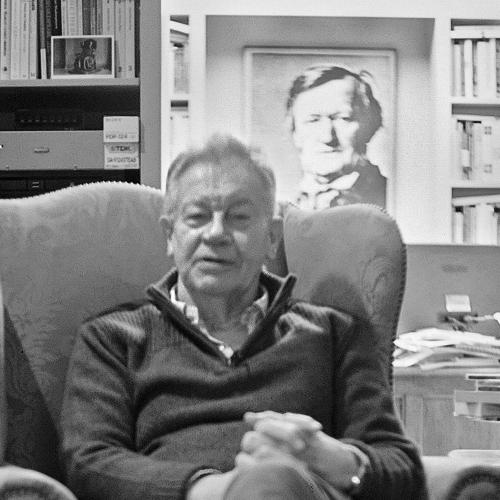COMPOSERS: Bruckner,Wagner
LABELS: Profil
ALBUM TITLE: Bruckner • Wagner
WORKS: Bruckner: Symphony No. 7; Wagner: Das Liebesmahl der Apostel
PERFORMER: Sächsischer Staatsopernchor Dresden; Tschechischer Philharmonischer Chor Brünn; Sinfoniechor Dresden; Tschechischer Nationalchor Prag; MDR Rundfunkchor Leipzig; Philharmonischer Chor Dresden; Dresdner Kammerchor; Staatskapelle Dresden/
Christian Thielemann
CATALOGUE NO: Profil PH 15013
Christian Thielemann took over the Dresden Staatskapelle, the world’s oldest orchestra, in 2012. Since then he has cultivated his Romantic tastes with them, with Bruckner’s symphonies foremost in their orchestral repertoire. This performance from the Semperoper in 2012 is stupefying in its grandeur, recorded to the point where one begins to wonder if there is such a thing as a too-good recording. Bruckner is susceptible of varying kinds of interpretation, from the monumental to the molten-lava-style. Thielemann, whose career began as repetiteur for Karajan, favours in general the monumental, though I have heard Bruckner from him that was spontaneous-sounding and supple. The sound he draws from the Staatskapelle on this occasion is astounding, so much so that I spent more time and concentration being amazed at the glowing strings, the pungent woodwind and above all the blazing brass than on being moved at this gloriously eloquent and heartfelt work. Seductive, but the kind of seduction where you don’t feel too good afterwards.
The Wagner item is a rarity, and should remain one. Composed for 1,200 voices when he was in Dresden, the sound under Wagner must have been staggering. Here there are a mere 200 singers, unaccompanied until the last few minutes, with a biblical-style text by Wagner. It’s a lusty work, with some fine things, but mainly a bore and disconcertingly ordinary. Thielemann makes the best possible case for it.
Michael Tanner
p.p1 {margin: 0.0px 0.0px 0.0px 0.0px; line-height: 9.5px; font: 14.0px Helvetica} p.p2 {margin: 0.0px 0.0px 0.0px 0.0px; text-indent: 8.5px; line-height: 9.5px; font: 14.0px Helvetica} span.s1 {font-kerning: none}
